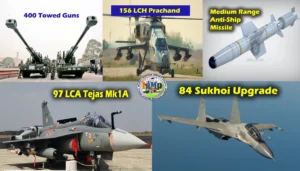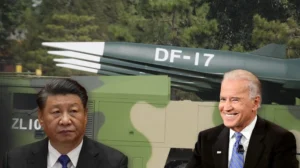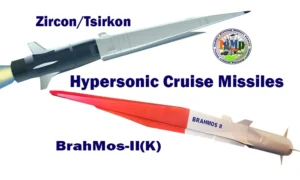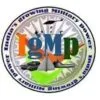
In the deluge of news related to the war between Israel and Hamas, many may have missed a development last month hidden behind the headlines that offers notable lessons for U.S. policy in the Middle East and much-needed hope for regional security.
On or around Oct. 19, Saudi Arabia reportedly shot down a cruise missile launched by an Iranian terror proxy toward Israel. That event likely caused concern in Iran and offers policymakers in Washington some insights regarding the value of U.S. arms sales in the Middle East and the potential of a combined regional security architecture there that includes the United States, its Arab partners and Israel.
The Houthis, Iran’s terror proxy in Yemen, launched a salvo toward Israel. The U.S. Navy’s guided-missile destroyer Carney, while sailing in the Red Sea, intercepted four cruise missiles and 19 drones. That successful interception was widely reported.
The military engagement, however, did not stop there. In addition to the actions of Carney, Saudi Arabia intercepted a fifth cruise missile, according to The Wall Street Journal. As the report suggests, Riyadh was likely focused on defending its airspace, through or near which the missile likely traveled as it flew toward Israel.
Even more interesting, Riyadh possibly used an American-made interceptor to down the missile.
The U.S. has sold Saudi Arabia in recent years a variety of weapons capable of intercepting a cruise missile, including RIM-116A missiles, AIM-9X Sidewinder missiles, AIM-120 Advanced Medium-Range Air-to-Air Missiles, and MIM-104 Patriot air and missile defense systems, according to the Stockholm International Peace Research Institute.
So why does that matter?
Well, many members of Congress now admirably voicing support for Israel previously tried to block the sale of weapons to Saudi Arabia that can be used to intercept missiles and drones launched by the Houthis. Had those efforts succeeded, Saudi Arabia may not have detected or intercepted the cruise missile, permitting it to continue toward Israel.
The larger lesson for members of Congress is to think twice about efforts to block the provision of defensive weapons to Saudi Arabia, which can lessen the burden on U.S. forces, protect common interests and save lives. Indeed, the Houthis are a leading threat to Saudi Arabia as well as a growing threat to the United States and Israel.
The more Saudi Arabia can intercept missiles and drones headed north from Yemen, the less effort Israel will have to spend on defeating those attacks. Riyadh’s focus will be on protecting Saudi airspace, of course, but the primary Saudi motive for downing Houthi missiles would matter little to Israelis. A more proactive Saudi effort to down all missiles headed north would prove useful, particularly if Israel finds itself in a major war with Hezbollah in addition to the current war with Hamas, two groups that are no friends of the Saudi government.
Accordingly, Saudi Arabia would be wise to be more aggressive in intercepting more Houthi missiles headed north. Saudi Arabia may not know whether a Houthis cruise missile is headed toward the Saudi port city of Jeddah or Eilat in Israel.
Regardless, for Riyadh, shooting down Houthi missiles would have the benefit of defending Saudi airspace, countering an Iranian proxy, garnering goodwill from the Biden administration, and increasing support in Congress for the provision of defensive weapons to Saudi Arabia.
Moreover, it is important not to miss the larger picture. In defending its airspace from intrusions by an Iranian terror proxy, Saudi Arabia wittingly or unwittingly helped Israel, demonstrating common interests between the two countries. Such a scenario is a nightmare for Iran, which has pursued a grand strategy for decades of keeping Arabs and Israelis distracted, divided and distrustful of one another, rather than cooperating to counter the real threat to regional security: the Islamic Republic of Iran.
That is why Iran felt so threatened by the 2020 Abraham Accords, in which the United Arab Emirates and Bahrain normalized relations with Israel. That is also why normalized relations between Israel and Saudi Arabia would be such a disaster for Iran, particularly considering Riyadh’s outsized influence.
Tehran likely hopes that Hamas’ barbaric Oct. 7 aggression against Israel has blocked or at least slowed the growing momentum toward a historic formal normalization between Israel and Saudi Arabia. Accordingly, decision-makers in Washington, Riyadh and Jerusalem would be wise to not let the events of last month derail Saudi-Israeli peace.
In addition to the economic benefits for Saudi Arabia and Israel, normalized relations would facilitate a U.S.- and Saudi-led regional security architecture that includes Israel. That would enable the U.S., key Arab states and Israel to cooperate in deterring, detecting and defeating threats from Tehran and its terror proxies.
Building on ongoing Biden administration initiatives with the Gulf Cooperation Council, this regional security architecture should include air and missile defense, maritime security and counterterrorism components. Such an arrangement would make it more difficult for Iran to conduct and hide its aggression — something the United States, its Arab partners and Israel could celebrate.
Bradley Bowman is the senior director of the Center on Military and Political Power at the Foundation for Defense of Democracies think tank, where Ryan Brobst is a senior research analyst. FDD does not receive money from any foreign government, including Saudi Arabia.
Source link








